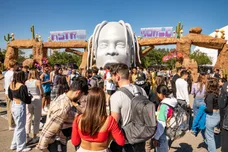SZA’s name is engrossingly as iconic as The Lion King‘s “Mufasa" (and the fricatives have it!). The extraordinary potential of the name might just be something she puzzles out daily from fresh perspectives. Indeed, she has given us a solid breakdown of “S-Z-A”; however, she seems welcoming of its open-ended nature. She resolved, for instance, that the “S” can stand for “Sovereign” or “Savior.” In other words, she has permitted our moods to choose either inconsistently. Any admirer or critic would discover so much from exploring beyond the individual letters. The alphabetic triad makes more sense as a whole, even though it’s connoted otherwise. We’ll get to that, but first, let’s see what SZA herself has said about her stage name.
Origin Story

The acclaimed singer has cited the Wu-Tang Clan's RZA as the pillar behind her name. While “RZA” stands for “Ruler, Zig-Zag-Zig, Allah,” SZA stands for “Sovereign Zig-Zag Allah.” These intricate terms are associable with the Supreme Alphabets of the Five Percent Nation, a Black-Islamic Nationalist Movement. Though redundant, mentioning that both artists are largely religion-inclined is crucial. SZA, in particular, was raised, nurtured, and shaped as a Muslim. Incrementally, we see a woman who wires her secular interests into her creative instincts without discarding her faith. We’ve flipped through her personal recital; now it’s time to diagnose why she picked the name!
SZA: A Glint of Poetry
If you’re unsure, surf the net: SZA is a deep thinker. Without even coming to her lyrics, her titles are so profound that they almost suspend disbelief. Hey, poetry does that too! If we’re to sit down with commonalities between SZA and poetry… whew… what an endless list it would be. In each of her songs, there’s a peculiar literary device. In “Seek & Destroy,” for instance, the overriding device was a rhetorical climax. Her precise pattern is to follow up her figurative lyrical choices with an identically-figurative title.
Strikingly, SZA has a thing for consonants, which drives us home to the point of her stage name. Although her strongest verbatim reference to the Wu-Tang Clan has been RZA, she is intellectually more similar to GZA. For a long time, GZA was analyzed to have the second-largest vocabulary in popular hip hop music. SZA seems to follow suit with perhaps the highest consonant frequency, and the count starts with her image tag.
A Self-Devised Identity

The singer grew up under her father’s morals. This, she counterbalances by creating her own value system. It shows that she can emerge victorious in a situation whereby she made the rules. We’re talking about a woman who has received a well-deserved Rulebreaker Award.
It’s established: SZA stands out. She’s, however, careful never to “stand out” of her respect for Islam. As a result, her stage name could mediate between her faith and the nature of her career. She can’t wear a hijab while singing about “secretly banging your homeboy.” To make up for that, she can at least honor Allah and his sovereignty in the name she shines with. In a nutshell, SZA is a wordsmith and, very significantly, a staunch woman of faith.







